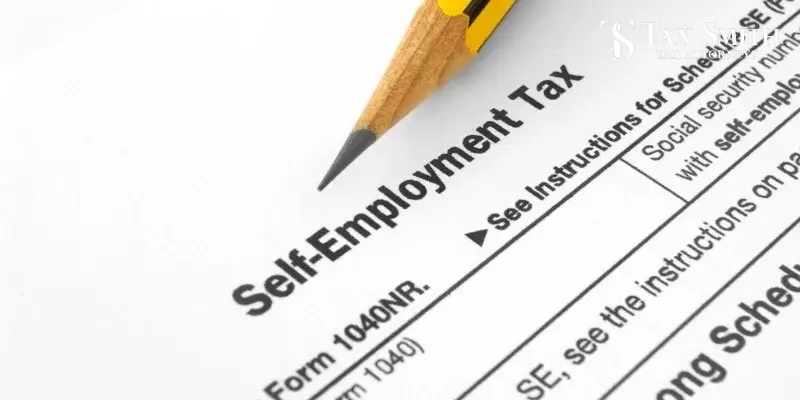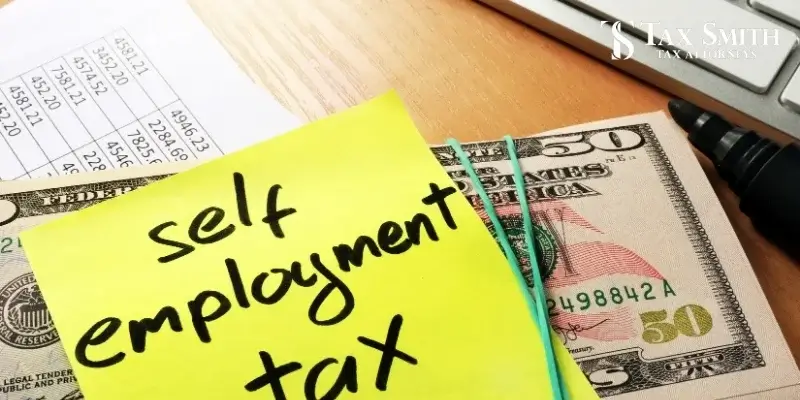1548 The Greens Way – Ste. 4 Jacksonville Beach FL 32250
Florida Self Employment Tax – All You Need to Know
If you own your own business, are an independent contractor, or are a freelancer, you may have to pay self-employment tax. If you are paid in cash or receive a 1099 form from a company you provide services for, you are considered an independent contractor and must file your taxes accordingly. Depending on how much you earn or how many expenses you have, self-employment tax can be a burden to pay all at once. There are ways, though, to save on self-employment tax and minimize what you owe in taxes.

How Much Will I Have to Pay in Self-Employment Tax?
Self-employment tax is a tax that pays into Medicare and Social Security. It is calculated based on earned wages. The self-employment tax rate in Florida is the same rate as the federal self-employment tax rate, which is 15.3%. This is a 12.4% tax for Social Security and a 2.9% tax for Medicare. Thus, self-employed taxpayers pay 15.3% of their annual net earnings. It is important to note that this is separate from income tax.
Workers who are employed at traditional companies, where they earn wages or a salary, pay Social Security and Medicare taxes automatically, as it is deducted from their pay each pay period. Their employer splits the cost of these taxes, so the worker pays 7.65% and the employer pays 7.65%. The difference for self-employed workers is that they pay both halves, or the whole amount, by themselves. This is one of the trade-offs for individuals who choose to be self-employed. Other benefits, such as flexible work schedules, vacation time, location of work, and freedom over the means used to complete work, offset the higher cost of things like taxes for many independent contractors and other types of self-employed individuals.
If you’re still unsure about how to calculate how much self-employment tax you are responsible for as an independent contractor, a freelance worker, or a small business owner, it may be time to call a professional tax attorney.
Self-Employment Tax Limits for 2025
Not everyone who is self-employed is subject to paying self-employment tax. There are minimum threshold earning amounts that necessitate a need to pay these taxes. If you earn less than $600, you do not have to pay state self-employment taxes, and if you earn less than $1,000, you do not have to pay federal self-employment tax.
Quarterly Estimated Payments
In Florida, if you expect to owe more than $1,000 in taxes annually, including self-employment taxes, you are required to make payments each quarter equal to an estimated one-fourth of your total tax bill for the year. This applies to those not authorized to work in the U.S. as well. However, you must have an ITIN (issued to individuals who are not eligible for a Social Security Number) to make payments on your future estimated tax bill. These payments help individuals who otherwise would end up owing too much at the end of the year.
If you are behind on filing your tax returns, it’s not too late to get in good standing with the IRS.
Tips to Minimize Florida Self-Employment Taxes
If, in addition to being an independent contractor, you have an additional job from a traditional employer who takes taxes out of your paycheck every pay period, the taxes you pay on that job may be enough to offset the taxes that you will owe for your self-employment earnings. At the very least, you may be able to avoid the required estimated quarterly payments.
Another way to lower your overall tax payments is to deduct half of your self-employment tax, which would be what your employer would pay, if you were traditionally employed, from your adjusted gross income. While this does not affect your self-employment tax, it does help offset your tax debt in general for the year.
Finally, you might want to establish an LLC, or limited liability corporation. The benefit of doing so is that LLCs are exempt from paying Florida state income tax. Again, this does not affect what you pay for self-employment tax. However, it does significantly affect your total taxes owed for the year, specifically income tax. You will not owe income tax, and while you will still owe self-employment tax, it is offset by the income tax deficit.

FAQs About Florida Self-Employment Tax
How Do I Calculate Self-Employment Tax in 2025?
To calculate how much self-employment tax you’ll pay when you file your 2025 taxes, multiply your net income, including tips and wages, by the current self-employment tax rate of 15.3% (net income x 0.153). The product of these two numbers is what you will owe for self-employment taxes.
What Is the Self-Employment Tax Threshold for 2025?
The threshold for the 2025 Social Security self-employment tax is $160,200. This means that, if you earn more than that, you only have to pay the social security portion of the self-employment tax on the first $160,200 that you make. The threshold for Medicare self-employment taxable earnings is $200,000. Thus, you would calculate your self-employment tax by multiplying the maximum earnings threshold of $160,200 by 0.124. Then you would add that to your entire net earnings (up to $200,000) for Medicare, multiplied by 0.29.
What Income Tax Changes Are Coming in 2025?
The threshold amount for taxable self-employed earnings for Social Security will go up from $147,000, which it was for 2022, to the new threshold for 2025, which is now the $160,000 of an individual’s annual profit earnings. This means that, for Social Security self-employment tax, you only have to pay 12.4% on up to $160,000 of your net earnings.
How Much Do Self-Employed Individuals Pay in Taxes in Florida?
Self-employed individuals in Florida pay the same self-employed tax rate at the state level as they do at the federal level. On both state and federal taxes, the self-employment rate for Florida residents is 15.3%, which is a 12.4% contribution to Social Security and a 2.9% contribution to Medicare.
Tax Help From TaxSmith, LLC
To be absolutely sure that you are handling your taxes properly, filing the right forms, and paying the right amount of taxes, call the professional tax attorneys at TaxSmith, LLC. Our attorneys are knowledgeable and well-versed in Florida’s self-employment tax laws.
Locations We Serve
- Alabama
- Arizona
- California
- Colorado
- Connecticut
- Delaware
- District of Columbia
- Florida – HQ
- Georgia
- Idaho
- Illinois
- Indiana
REQUEST A CONSULTATION
Please fill out the Contact Request Form and a Tax Attorney/Paralegal will call you
to discuss legal representation or to schedule your free initial consultation




